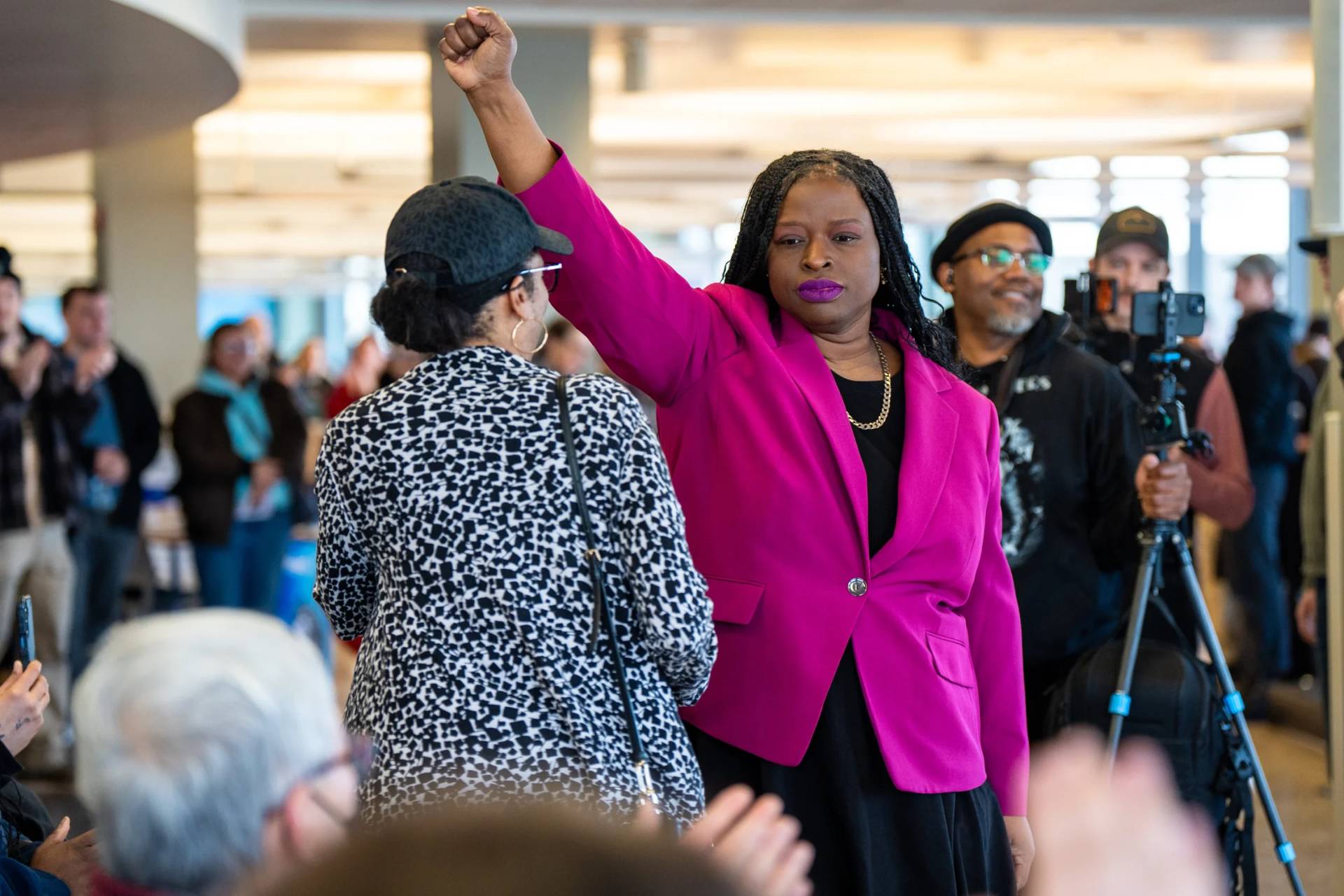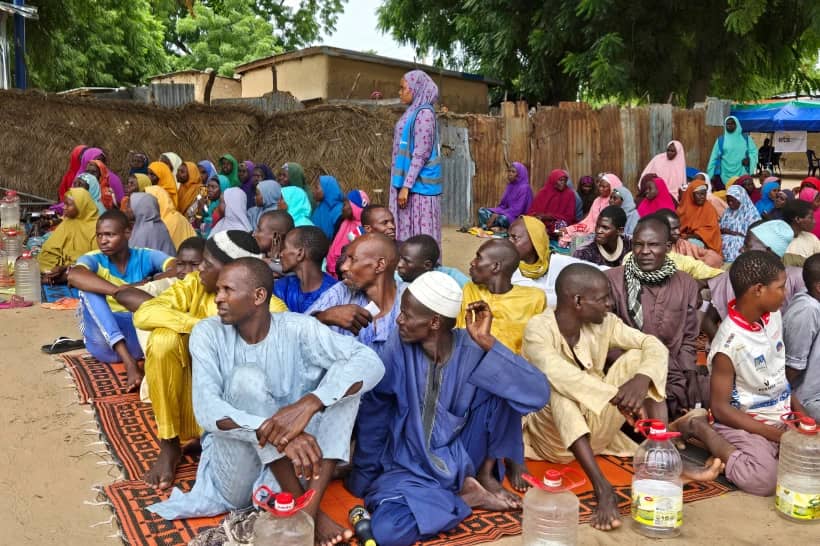WASHINGTON, D.C. — As federal authorities announced Sept. 20 an all-time high for the number of apprehensions at the U.S.-Mexico border — upward of 2 million — an annual immigration conference was taking place at Georgetown University’s Law Center campus in downtown Washington.
The 19th Annual Immigration & Policy Conference, which brings together government workers, politicians, lawyers, journalists and representatives of humanitarian organizations, unraveled numbers and unveiled trends in the movement of people across continents.
Solutions, however, remained as elusive as ever.
“In general, it doesn’t look good,” said panelist Caitlin Dickerson, an immigration reporter for The Atlantic, of her reporting on where Congress stands on any possible agreement dealing with immigration issues. Hardest to find is a solution about what to do with the approximately 11 million who are in the country without legal permission as well as permanent relief for those brought into the country illegally as minors.
Not only is there division between the country’s two major parties, but even the parties themselves are divided on the approach, she said.
“Each time you think, maybe they’re actually gonna get over the line, and they don’t … it’s surprising and also not,” Dickerson said. “We’re back where we’ve been so many times.”
The conference took place in person for the first time since the coronavirus pandemic began but also included online participation.
Participants heard how Cubans, Nicaraguans and Venezuelans, fleeing authoritarian governments and crashing economies, are increasingly mixed in with Central Americans coming into the country at the U.S.-Mexico border.
Some wondered what the implications would be for Republican politicians, such as Marco Rubio, who have large constituencies made up of members with roots in those countries. Though they tout a hard line against governments that the new wave of migrants is fleeing, they also vote against immigration legislation.
But as Dickerson pointed out, Democrats have problems of their own on the immigration front.
“It’s not just far-right conservatives who are blocking Democrats from changing anything in Congress right now, it’s also moderate Democrats,” she said.
When you look at broader immigration bills, “you didn’t have moderate Democrats sign on to co-sponsor those bills. You saw the same members of the progressive left that are typically loudest on this issue,” and they were “standing out there alone,” she said.
On the refugee front, U.S. Department of State representative Lawrence Bartlett, director of refugee admissions, said that while “we’ve fallen woefully short” of meeting the goal set by President Joe Biden of admitting 125,000 refugees to the United States this fiscal year, the U.S. has taken in great numbers of those fleeing perilous situations.
While the U.S. will have admitted around 25,000 official refugees in the fiscal year set to end Sept. 30, under a “parole” program, 80,000 Afghans have entered the country, he said, with 90,000 Ukrainians granted parole, but only 55,000 in the country.
Bartlett spoke of how those aiding migrants and refugees are exploring a number of ways of dealing with the changing face of refugees and situations. One of those ways includes identifying those who qualify for refugee status while they’re still in their home countries, so they don’t have to take the dangerous journey north.
“Trying to still figure out who’s a refugee while they’re still in their country is complicated,” he said.
It’s easier to identify them in places such as Nicaragua, Cuba and Venezuela, but more complicated in places such as Guatemala, Honduras and El Salvador, he said.
“We still have not cracked the code” on refugee resettlement in that area, he added.
The conference also hosted a chat with Republican Gov. Asa Hutchinson of Arkansas, who in 2019 signed a bill allowing recipients of the Obama-era Deferred Action for Childhood Arrivals to obtain professional or occupational licenses in state.
DACA recipients were brought into the country illegally as minors, but the status grants them a reprieve from deportation, a work permit and other temporary documentation as long as they meet certain criteria. Hutchinson spoke of the benefits to his state and how DACA recipients contribute to the workforce in professions such as nursing and teaching.
A participant asked whether he supported or condemned recent actions by his fellow Republicans of randomly transporting and dropping off groups of migrants in various parts of the country. At the time of the conference, Florida Gov. Ron DeSantis was facing criticism for sending a group made up largely of Venezuelans to Martha’s Vineyard.
There were questions about why the Florida governor had flown the group from Texas and under what circumstances. A civil rights law firm filed a class-action lawsuit against the governor following the incident, but the governor’s office said the migrants signed documents agreeing to be flown to Massachusetts.
“I’ll just put it this way. I haven’t done it, haven’t done that, don’t intend to do that. Beyond that, these migrants have to volunteer to be transported. … I’ll let those facts develop,” he said, adding that people had to be treated humanely.
Hutchinson acknowledged the brokenness of the immigration system, and said that “when we talk about immigration, we have to recognize the important story of immigration to the fabric of our country.” Addressing the yearning of “those that want to come to our shores,” their hopes for freedom makes the U.S. a better place, he said.
“Obviously, we want them coming here through an orderly and legal process,” he added.
But policy has to be tough, he said, and take into consideration border security and order.
“You gotta have a tough policy over compassion. The reason is that a compassionate policy basically tells everyone, ‘Our borders are open’ and that’s what you see during this administration. And so it’s a tough love type circumstance. You gotta show toughness in order to get control of that border.”
The Biden administration, however, has been criticized by immigration supporters, particularly for Vice President Kamala Harris’ July 2021 words in Guatemala telling would-be migrants from Central America “do not come.” It’s a message Biden administration officials have repeated.
But participants said world events, such as climate change, and world conflicts that have brought in waves of immigrants — including them or their ancestors — throughout the history of the U.S., will continue.
The conference’s keynote speaker, Connecticut Attorney General William Tong, said immigration is often referred to an issue for people on the southern border, one that refers to immigrants as “the other.” That fails to recognize that almost everyone in the U.S. has a personal connection to immigration and is here because an ancestor came, he said.
“My story began when my dad immigrated to this country,” he said.














